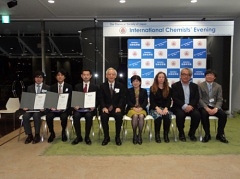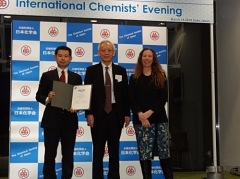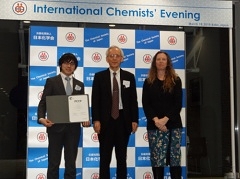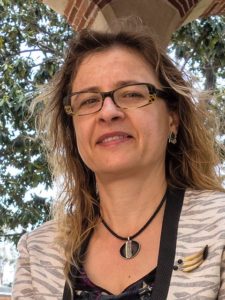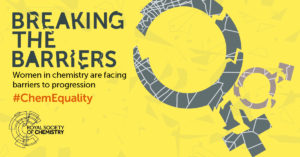The 99th Chemical Society of Japan Annual Meeting took place in Konan University, Japan between the 16th – 19th March 2019.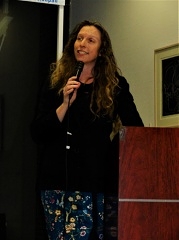
The Royal Society of Chemistry’s Emma Wilson, Director of Publishing delivered a greeting speech and awarded PCCP Prize Certificates for Outstanding Achievement of Young Scientists in Physical Chemistry and Chemical Physics with committee chair and PCCP Advisory Board member Professor Yasuhiro Iwasawa.
Prizes were awarded to:
1. Dr. Hikaru Kuramochi, Research Scientist RIKEN Center for Advanced Photonics – “Development of ultrafast time-domain Raman spectroscopy using few-cycle pulses and its application to complex molecular systems”
2. Dr. Koji Oohora, Assistant Professor Osaka University, Graduate School of Engineering – “Hemoprotein engineering by chemical modification toward artificial enzyme and biomaterials”
3. Dr. Ken Sakaushi, Senior Researcher, National Institute for Materials Science Center for Green Research on Energy and Environmental Materials – “Two-Dimensional Conjugated Frameworks towards Unveiling Microscopic Energy Storage/Conversion Mechanisms”